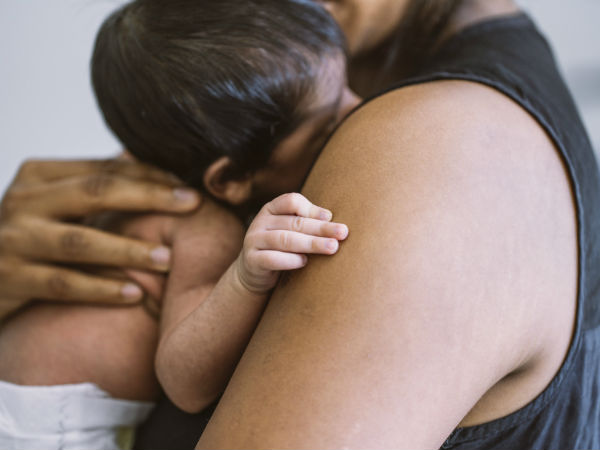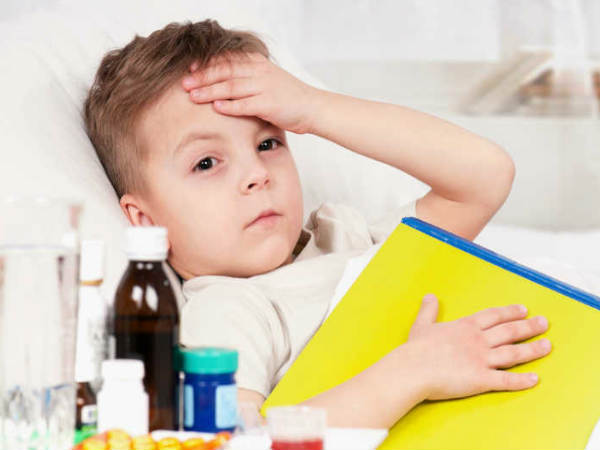Just In
- 4 hrs ago

- 5 hrs ago

- 9 hrs ago

- 10 hrs ago

Don't Miss
- Sports
 IPL 2024: List of Centuries By CSK Batters As Ruturaj Gaikwad Hits Maiden Ton As Captain
IPL 2024: List of Centuries By CSK Batters As Ruturaj Gaikwad Hits Maiden Ton As Captain - Education
 Telangana Inter Manabadi 1st and 2nd Year Results 2024 to be Declared Tomorrow
Telangana Inter Manabadi 1st and 2nd Year Results 2024 to be Declared Tomorrow - News
 Explained | Which Cancer-Causing Chemical Was Found Amid MDH, Everest Row?
Explained | Which Cancer-Causing Chemical Was Found Amid MDH, Everest Row? - Finance
 1:5 Split Soon: Rs 2,300 Defence Stock To Split Into Five Shares, Rs 400 Cr Fundraising Too; Hits 52-Week High
1:5 Split Soon: Rs 2,300 Defence Stock To Split Into Five Shares, Rs 400 Cr Fundraising Too; Hits 52-Week High - Movies
 Digangana Suryavanshi Gets Ready For Her Next Film 'Krishna From Brindavanam'- See Mahurat Pic
Digangana Suryavanshi Gets Ready For Her Next Film 'Krishna From Brindavanam'- See Mahurat Pic - Automobiles
 Chrysler Pacifica Marks Seven Years As Most Awarded Minivan With New Campaign
Chrysler Pacifica Marks Seven Years As Most Awarded Minivan With New Campaign - Technology
 Xiaomi Robot Vacuum Cleaner S10, Handheld Garment Steamer, and Redmi Buds 5A Launched in India
Xiaomi Robot Vacuum Cleaner S10, Handheld Garment Steamer, and Redmi Buds 5A Launched in India - Travel
Kurnool's Hidden Gems: A Guide To Exploring India's Lesser-Known Treasures
Roseola In Babies: Causes, Symptoms And Treatment
Babies are often very susceptible to infections as their immunity is not fully developed. They are also more prone to catching infections due to their daily activities in the kindergarten as well. While a child receives immunity from quite a few diseases and infections from his or her mother, some potent viruses may still be successful in causing an infection.
There are some infections that are so common in toddlers that they are considered to be a part of growing up. Roseola is also extremely common and can be overcome easily. Read on to know more about the virus causing it, symptoms and treatment below.

What Is Roseola?
Roseola is a mild infection which is caused by the human herpes virus. It is so common that most of the kids going to kindergarten are said to be affected by this infection. Roseola mostly affects kids by the time they are 2. The infection is characterised by the appearance of a rash and high fever for a few days, which eventually subsides.
Roseola is also commonly known as the rash after fever or the sixth disease. A child contracting the infection once may develop some immunity to it, but the child is not 100 per cent immune to the disease.

What Causes Roseola?
Roseola is commonly caused by the Human Herpes Virus 6 and Human Herpes Virus 8. The virus usually remains in the child's body and that is why the infection often does not show any signs or symptoms until after two to three weeks. The child then may develop a fever that can last for 3 to 4 days. After the fever subsides, the child may develop a rash which appears to be small dots of pink across their shoulders, arms, chest and the torso.
Like any other virus, Roseola is extremely contagious and can easily spread from one child to another even during the fever stage, before the rash appears. However, it rarely results in a wide outbreak but can occur at any time of the year.
How Does A Child Get Roseola?
The human herpes virus which causes roseola easily spreads from one child to another. So, if your child has contracted the infection, it is most likely due to their interaction with other kids who have been affected by the virus.

What Are The Symptoms Of Roseola?
Roseola usually does not show any signs or symptoms for about a week or two, after which your child may develop a high fever, which can last for a good 3 to 4 days. Another sure shot sign of roseola is a rash on their torso and limbs almost immediately after the fever subsides. However, some children show the below signs of roseola as well.
- Sore throat
- Cough
- Loss of appetite
- Swollen eyelids
- Irritability
- Mild diarrhoea
Apart from the above symptoms, rashes are quite common in children affected by the roseola virus.
The roseola rashes are extremely mild and look more like small pink dots which may be flat or raised. They may not be itchy at all and cause no harm. It is advised to let the rashes subside on its own, which usually takes about 4 to 5 days.

What Is The Treatment For Roseola?
Because roseola is considered to be a mild skin infection, there are no specific medications available for the same. But it is important to keep your child under observation as it is a highly contagious infection.
Doctors may, however, advise you to keep your child hydrated by giving loads of fluids. Certain medications to relieve pain can be recommended by the doctor. In some cases, antiviral medications can be given to children with lower immunity which can help prevent the virus replicate its DNA. Adequate rest is another way in which you can ensure the well-being of your child during the infection.
What Are The Risk Factors For Children Affected By Roseola?
The only risk factor currently associated with roseola is the high fever which the child develops during the infection. If not controlled properly, the high fever may cause seizures during which their hands and legs may jerk involuntarily and they may lose control over their bladder and bowels. Though most of the seizures in children are of short duration and not harmful, it is important to take proper precautions and not let this situation arise.
For kids with underdeveloped or weak immune systems, even mild cases of roseola may cause serious complications such as pneumonia and encephalitis, which are potentially life-threatening.
But all these are extremely rare consequences of roseola which is otherwise just a harmless viral infection.
If you find that your child's Roseola rash does not seem to clear in a few days, it is better to get the rash checked in order to rule out any other skin infection.

How Do I Prevent My Child From Getting Roseola?
There are no vaccinations available to prevent roseola, the only thing you can do is avoid them from interacting with kids affected with the infection. Also, you need to make sure that your child stays at home if affected with roseola. But you can safely let them resume their activities once they are fever free for at least twenty four hours. As for the rash, it will soon disappear on its own without leaving behind a mark.
-
 insync100 Popular Hindu Baby Names For Girls And Boys That Start With The Letter M
insync100 Popular Hindu Baby Names For Girls And Boys That Start With The Letter M -
 pregnancy parentingExclusive: Born Too Soon! How Navigating Prematurity With Courage And Collaboration Saved A Little Girl
pregnancy parentingExclusive: Born Too Soon! How Navigating Prematurity With Courage And Collaboration Saved A Little Girl -
 pregnancy parentingExpert On Importance Of Screening Newborns For Lung Cancer
pregnancy parentingExpert On Importance Of Screening Newborns For Lung Cancer -
 fashionChildren's Day 2023: Bollywood Celebs Prefer Comfy And Cute Outfits For Their Babies, Get Inspired!
fashionChildren's Day 2023: Bollywood Celebs Prefer Comfy And Cute Outfits For Their Babies, Get Inspired! -
 pregnancy parentingHow To Calm An Irritable Baby In Under 1 Minute? Tips For New Parents
pregnancy parentingHow To Calm An Irritable Baby In Under 1 Minute? Tips For New Parents -
 pregnancy parentingVaginal Tears During Childbirth: How To Take Care Of It At Home?
pregnancy parentingVaginal Tears During Childbirth: How To Take Care Of It At Home? -
 pregnancy parentingTeenage Pregnancy: The Effect On Babies Mentally, Emotionally, Socially And Physically
pregnancy parentingTeenage Pregnancy: The Effect On Babies Mentally, Emotionally, Socially And Physically -
 pregnancy parentingSummer Baby Care: How To Avoid Dehydration In Babies
pregnancy parentingSummer Baby Care: How To Avoid Dehydration In Babies -
 babyIs Jaggery Safe For Babies? When Can You Start Giving Your Kid Jaggery?
babyIs Jaggery Safe For Babies? When Can You Start Giving Your Kid Jaggery? -
 babyWinter Soup For Babies: Benefits And 2 Recipes (Veg & Non-veg)
babyWinter Soup For Babies: Benefits And 2 Recipes (Veg & Non-veg) -
 babyAmazon Great Indian Sale On Baby Products: Car Seats, Carriers And Other Baby Travel Essentials
babyAmazon Great Indian Sale On Baby Products: Car Seats, Carriers And Other Baby Travel Essentials -
 pulseUnusual Names For Babies And Their Meanings
pulseUnusual Names For Babies And Their Meanings


 Click it and Unblock the Notifications
Click it and Unblock the Notifications



